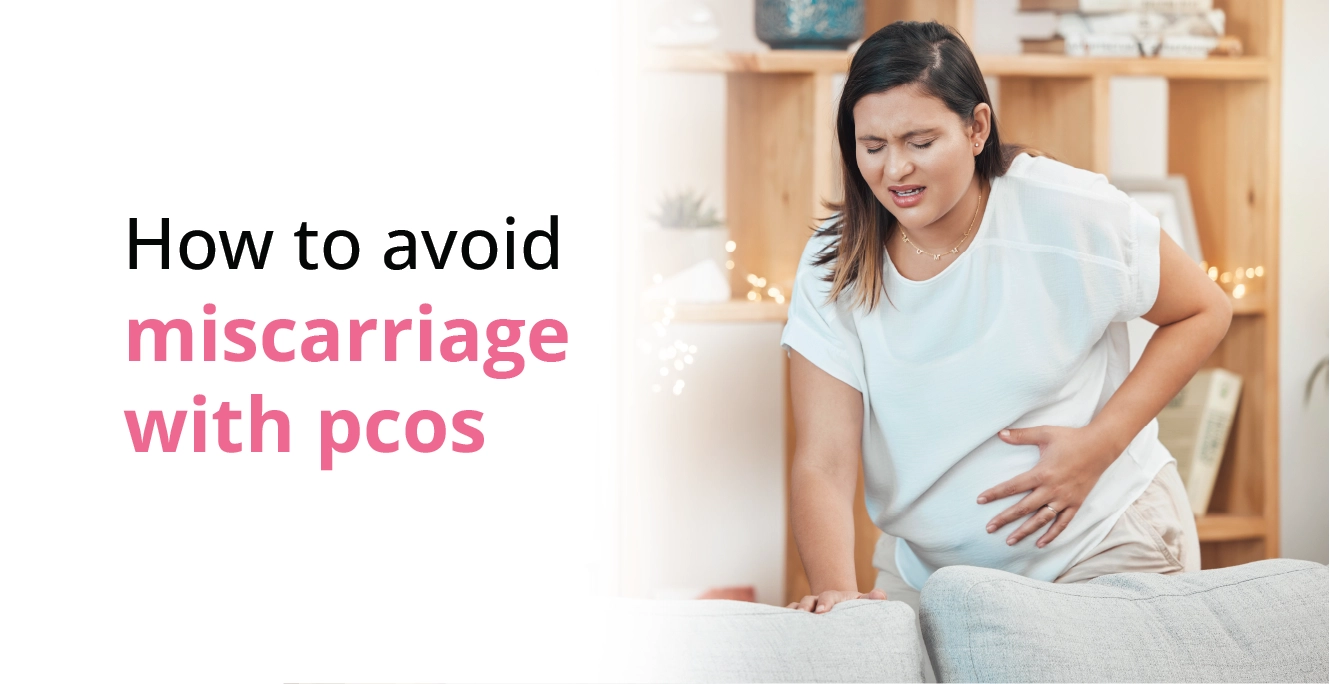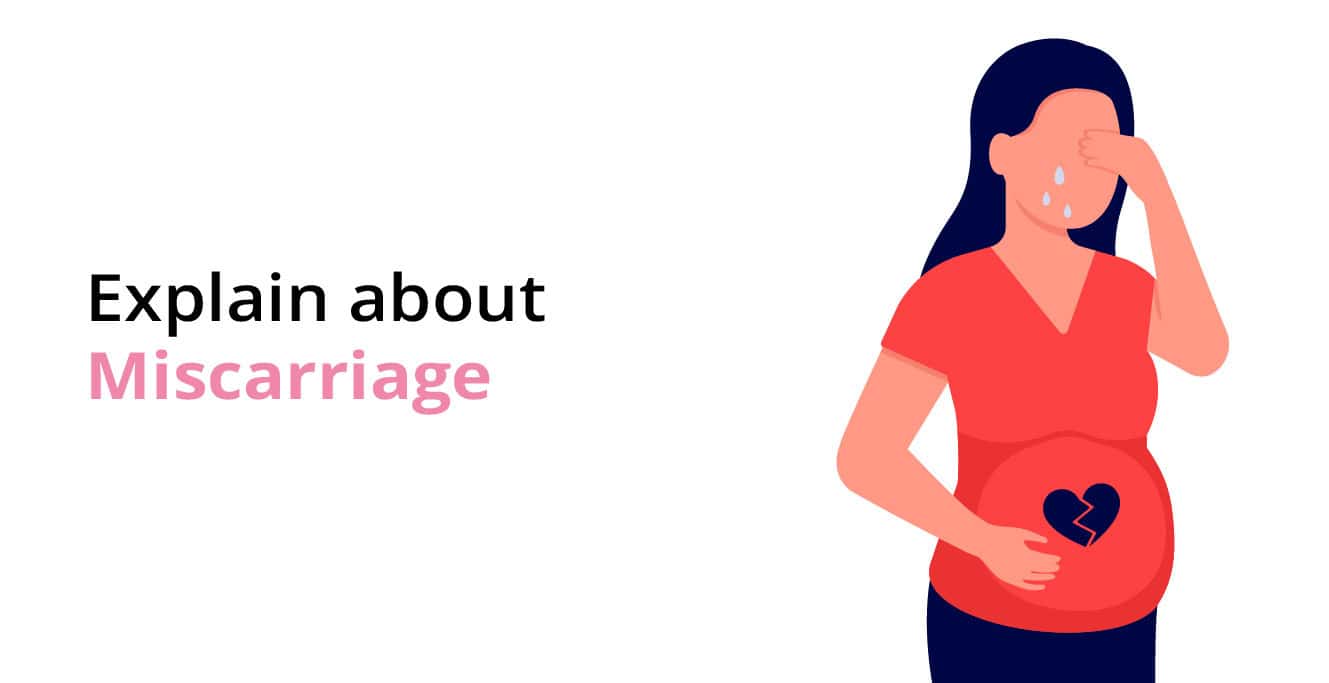
Understanding Chemical Pregnancies and Early Miscarriage

Table of Contents
A positive pregnancy result is a cause for celebration and giving thanks. But what if, just a few weeks after the positive result, the pregnancy test comes back negative?
No, this isn’t due to a false positive. This typically happens due to a condition called a chemical pregnancy.
In this article, we discuss what chemical pregnancy is, the signs of chemical pregnancy and how to prevent chemical pregnancy.
What is a chemical pregnancy?
A chemical pregnancy is a very early miscarriage, which occurs within the first five weeks of the pregnancy.
In some instances, although the sperm enters the egg, complete fertilisation may not have taken place, resulting in a miscarriage.
In other instances, the egg develops into an embryo three weeks after fertilisation. The embryo may even have implanted into the wall of the uterus. But the embryo does not develop any further and miscarries before the fifth week of pregnancy.
Why is it called “chemical” pregnancy?
The term “chemical” does not refer to the foetus or the pregnancy. Rather, it refers to the human chorionic gonadotrophin (hCG) hormone produced by the body when a woman becomes pregnant.
Within the first month of pregnancy, the rise in the hCG hormone tells both the mother and the doctor that a woman has conceived. At this stage, no other visible developmental markers exist to indicate a pregnancy.
The moment the miscarriage occurs, the level of hCG in the woman’s body plummets.
These hormonal and chemical changes in the body that occur rapidly within five weeks give this experience the name “chemical pregnancy”.
Chemical pregnancy vs clinical pregnancy
A “clinical pregnancy” is one where the foetus is clearly visible on the ultrasound, and the pregnancy can be tracked. The woman also experiences signs of pregnancy at that stage.
How common are chemical pregnancies?
Research shows that chemical pregnancies are very common around the world. According to some reports, about 50% of all early pregnancies result in a chemical pregnancy. Additionally, 22% of all IVF conceptions result in a chemical pregnancy.
Oftentimes, it can be very difficult for the woman to realise she has experienced a chemical pregnancy. Since it occurs very early into the conception, sometimes the miscarriage may be confused with a very heavy and painful period.
It is only if the woman has taken a sensitive pregnancy test within the first three weeks of the pregnancy that the early pregnancy is revealed.
Who is most vulnerable to chemical pregnancies?
While a chemical pregnancy can affect any woman or female-bodied individual, this condition is observed more commonly in the following cases:
- Females over the age of 35
- Females with an atypically shaped uterus
- Females with hormonal conditions or thyroid disorders
- Females diagnosed with sexually transmitted diseases
- Females with polycystic ovarian syndrome
- Females with diabetes
Why do chemical pregnancies happen?
Understanding the reasons for chemical pregnancy can help couples take the necessary steps to prevent an early miscarriage. Here are a few reasons why chemical pregnancies occur.
Lifestyle
In some cases, lifestyle impacts certain women/female-bodied individuals. Leading a very sedentary life, being exposed to harmful chemicals and drinking & smoking during the early stages of pregnancy can make a person more vulnerable to a chemical pregnancy.
Chromosomal defects in the egg
50%-80% of all first-trimester miscarriages occur due to medical conditions resulting from chromosomal defects in the egg/embryo. Often, these chromosomal abnormalities are very severe and make the foetus unfeasible.
Uterine conditions
In some cases, women who have uterine fibroids, endometrial polyps, uterine septum or gestational trophoblastic diseases, to name a few, are more likely to experience difficulties during early pregnancy. Chances of a miscarriage are high in these instances.
Even without any uterine conditions, some pregnancies are not feasible. The fertilised egg can successfully implant only when the implantation occurs within the Window of Implantation. This typically starts from Day 6 after ovulation and can last for around four days before closing.
If the window of implantation is missed, even a healthy embryo with no chromosomal defects may not attach to an otherwise healthy uterus.
How can couples prevent a chemical pregnancy?
A chemical pregnancy can occur suddenly. Since most women don’t even know they are pregnant this early, it can be very hard to prevent a chemical pregnancy.
Couples who have been trying to conceive for a long time, but have been unsuccessful, may be recommended a Preimplantation Genetic Screening (PGS). This test helps couples identify if there are any chromosomal abnormalities in the egg, which may impact a successful pregnancy and birth.
Couples who are currently pregnant and are planning for a larger family are recommended to undergo tests like Amniocentesis and Chorionic Villus Sampling (CVS). While these two tests are designed to diagnose potential developmental problems in older foetuses (from 11 to 20 weeks), they can give the parents a fair idea about any problems they might encounter in future pregnancies.
While some lifestyle changes made at least a year or more prior to conception may reduce the woman’s vulnerability to a miscarriage, often, there is no way to prevent a chemical pregnancy.
Couples who want to know how to prevent chemical pregnancy can consult their fertility doctor for more personalised medical advice.
There is some good news after all
The pain of losing a baby cannot be erased. But couples hoping to conceive have cause to be hopeful. Even if they experience a chemical pregnancy, many couples do go on to have a safe and successful pregnancy in the future.
The occurrence of one chemical pregnancy often does not have any impact on subsequent pregnancies. With the right fertility care, women and female-bodied individuals can have a healthy and happy baby in their arms at the end of their pregnancy.
Conclusion
At Birla Fertility & IVF, our experienced fertility doctors have assisted many couples who have experienced chemical pregnancies. We deeply empathise with the emotional distress that can occur due to the loss of a pregnancy. Our compassionate doctors work closely with you to help you through this difficult time.
We monitor your medical history and help you successfully conceive. Our state-of-the-art medical facility is fully equipped to support both natural and artificial conceptions.
FAQs
1. Is a chemical pregnancy still a baby?
Pregnancies are very personal experiences. Despite the egg/embryo miscarrying before the fifth-week mark, the pregnancy is very real. For mothers, the loss of the egg/embryo can be as painful as losing a baby in late-term pregnancy. It’s very important to treat the mother with empathy and gentleness during this difficult time.
2. What are the signs of a chemical pregnancy?
Chemical pregnancies don’t exhibit any signs and symptoms that a clinical miscarriage would. Since the pregnancy is still at a very early stage, the miscarriage may resemble menstruation-like symptoms.
Some common chemical pregnancy symptoms include the following:
- Delayed period.
- Heavy bleeding with large blood clots.
- Moderate-to-severe menstrual cramps.
- Low hCG hormone levels revealed in blood tests.
3. How long will a chemical pregnancy last?
A chemical pregnancy usually lasts under five weeks. The miscarriage may occur within a few days after the positive result, or the embryo may develop for up to five weeks and then miscarry.
Our Fertility Specialists
Related Blogs
To know more
Birla Fertility & IVF aims at transforming the future of fertility globally, through outstanding clinical outcomes, research, innovation and compassionate care.
Had an IVF Failure?
Talk to our fertility experts

 Our Centers
Our Centers
















